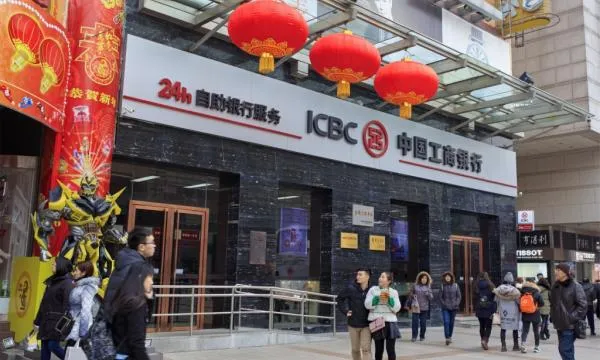
Small Chinese banks struggle to strike balance between curbing risk and lending
Megabanks have easier access to funding and have more stable asset quality.
Chinese banks are caught in an interesting dilemma as they struggle to find the middle ground between supplying credit to prop up a slowing economy whilst adhering to the government’s deleveraging programme.
The government has been actively urging banks to heighten lending to preferred sectors like credit-short SMEs who have been bearing the brunt of the overall economic slowdown. However, banks must also keep away from risk and crack down on shadow banking activity in an effort to comply with the ongoing deleveraging.
Also read: Chinese banks brace as more reserve cuts loom to boost credit-short SMEs
Faced with this daunting agenda, smaller players like rural commercial banks and joint stock commercial banks (JSB) are feeling the heat more than megabanks and city commercial banks.
“Because many of the new restrictions are proportional--e.g., caps on interbank funding as a percentage of all funding sources--smaller banks have felt the greater impact. Deposit-richer larger banks have more flexibility to continue issuing such instruments, without hitting new proportional limits,” the report’s authors said.
In fact, big banks were able to turn to a short-term interbank debt instrument called negotiable certificates of deposit (NCD) for their funding requirements, a privilege that smaller banks can not easily access. Outstanding NCDs exceeded $1.3t (CNY9t) in August, compared with about $431.71b (CNY3t) at the end of 2015.
“Smaller banks are also constrained from competing for deposits because China still has informal caps on deposit rates,” the firm noted. “The PBOC had been expected to relax its informal guidance for the upper limit of commercial banks' deposit rates, equipping small banks to compete for more deposits by offering higher rates. However, given current conditions, that process may be slow to avoid upward pressure on rates.”
Also read: More bailouts loom as staggering bad loans batter Chinese rural banks
New rules governing wealth management products (WMP) would also hit JSB or regional banks harder as they have to make bigger adjustments to their balance sheets and strategy given their reliance on the shadow funding market. “[S]ome small banks that used to be heavily involved in off-balance sheet activities may still be under pressure to fund and capitalise those previous shadow loans as shadow funding diminishes,” added S&P.
Smaller players seeking to plug the losses left by tighter scrutiny on WMP. have thus turned to structured deposits which offer yields as high as 5.5% on three-month deposits. In fact, structured deposits soared 32.4% in the first half of 2018. S&P notes however that this could only serve as a temporary alternative as the country’s regulators heighten oversight.
The same also holds true for the industry-wide bad loan crackdown. As the non-performing loan ratios for the country’s ‘Big 5’ state-owned commercial banks fell from 1.7% to 1.5%, rural commercial banks (RCBs) have seen theirs rise from 2.5% whilst those for joint-stock commercial banks also inched up 0.1%.
It doesn’t help that megabanks enjoy stronger liquidity positions due to their larger retail footprints and higher public and depositor confidence. In fact, ten of the 41 listed national and regional banks in China have a running Adjusted Loan-to-deposit ratios above 100% in June. “Because they have fewer constraints, megabanks are in a better position to expand their credit channels.”






![Lorem Ipsum [ABF 1]](https://cmg-qa.s3.ap-southeast-1.amazonaws.com/s3fs-public/styles/exclusive_featured_article/public/2025-03/a_hand_pointing_to_a_futuristic_technology_5b87c9d0e3_1.png.webp?itok=2w0y1WhS)


![Cross Domain [Manu + SBR + ABF + ABR + FMCG + HBR + ]](https://cmg-qa.s3.ap-southeast-1.amazonaws.com/s3fs-public/styles/exclusive_featured_article/public/2025-01/earth-3537401_1920_4.jpg.webp?itok=WaRpTJwE)








 Advertise
Advertise

